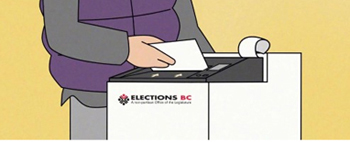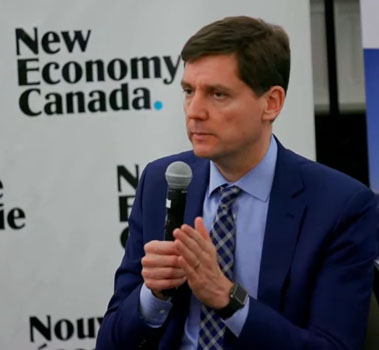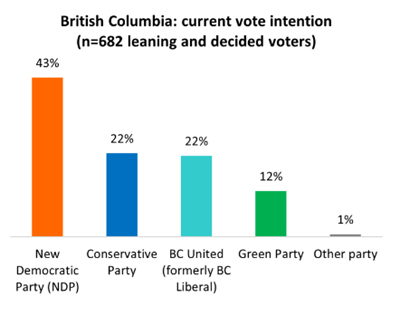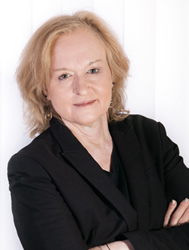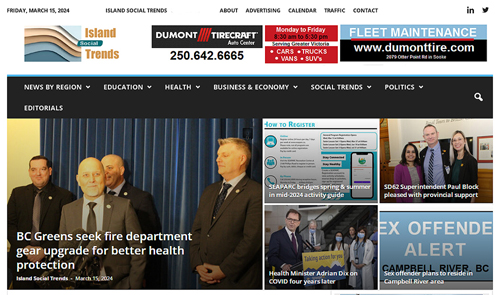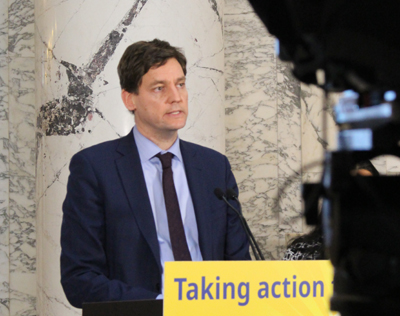
Monday March 18, 2024 | VICTORIA, BC [Updated 2:31 pm]
Political analysis by Mary P Brooke | Island Social Trends
The 2024 provincial election season in BC continues to ramp up.
The election is scheduled for October 19, 2024 but the campaign period will officially begin on July 23 and the writ will drop (election will be called) on September 23.
Today Premier David Eby told media in a question session in Delta, following his announcement about provincial funding support for water infrastructure development to support agriculture and food security: “There have been an array of polls. The majority of polls of which I am aware are very flattering to the BC NDP.”
“But I’ve seen this movie before,” Eby continued, adding: “I am always skeptical of polls,” he said.
Notably a poll just ahead of the May 2013 provincial election predicted the NDP coming in with a strong win, when in fact the very opposite happened.
“There is only one poll that matters … it’s the election in October,” the premier said today.
“My job between now and then is to show British Columbians the direction that we’re going to head if the BC NDP gets to form government again. And then they can vote accordingly,” said Eby.
NDP directions:
Today Eby put food security among his top concerns.
His government is working on a range of ‘people first’ directions particularly supports for low-income and middle-income residents through a cross-ministry approach.
Housing policy has seen a major overhaul last fall, with implications to come for months and years ahead, though the plight of renters may still need more attention in a rental market that still suffers from a 30-year drought in supply. The NDP may want to continue promoting their ingenuity of the BC Builds program.
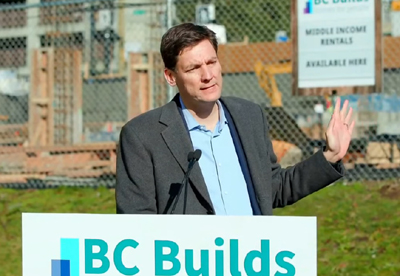
Sometimes party communicators lose sight of the need to openly laud their brightest gems. It can be tough to explain things like how additional supports to low-income residents has province-wide impacts over years to come in terms of health-care, housing, education and overall social stability. Not jazzy stuff for the campaign trail, but sets the NDP apart from what other parties in government would likely do.
On the K-12 education file, it seems like business as usual. In a context of a fast-growing population schools are funded as the budget allows. Most other issues are presently rather muted, with not a lot of new vision out of that Ministry.
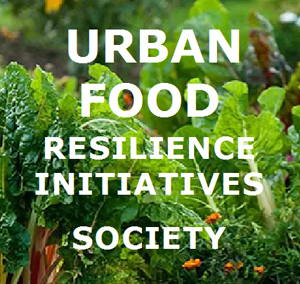
On the post-secondary side, the issue of international students was quickly subdued; post-secondary institutions will continue to struggle with revenues to meet their operating budget obligations while simultaneously being asked to train workers of the future in many new areas yet to emerge.
Opposition party challenges to Eby’s government are frequently around the decriminalization of small amounts of illicit drugs, and a shortfall on overall health-care delivery (still nearly one million people without a family doctor, but arguably catching up from the short-sighted policies of the previous then-BC Liberal government over 15 years up to 2017).
Opposition parties nit-pick around the edges of NDP policy and performance but overall have not made any significant dent in the majority government’s self-directed momentum.
Some singular stand-out successes by the NDP in health-care should be highlighted on the campaign trail, notably starting development of a new medical school at SFU Surrey campus, more cancer centre developments, at-home testing for HPV (which also in some ways deals with the doctor shortage). and the very recent additional funding for home-care for seniors.
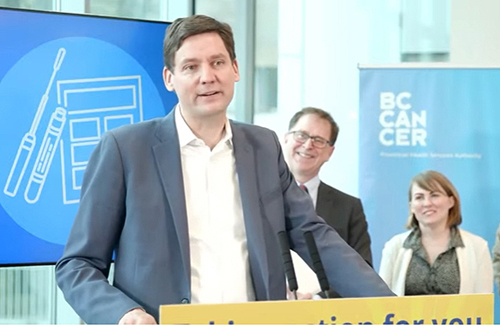
The fact that BC managed its way well enough through the pandemic (both financially and in terms of social cohesion) was notably successful but might be to too painful for many who already have that in the rear view mirror. Mention of the pandemic could be minimal to none during the upcoming NDP campaign.
While it has been a messy thing to deal with, Eby did a nimble job of working his way through the recent episode of Selina Robinson’s departure from cabinet and then the party (on the heels of never really highlighting her in his new cabinet in December 2022), in recent weeks tip-toeing his party through the minefield of addressing the Israel-Hamas war impacts that are being felt in BC and across Canada. It’s unclear how prominent any of that will be in the upcoming seven months until election day.
Latest Angus Reid BC political poll:
Earlier today the Angus Reid Institute released their latest poll findings about the provincial political landscape, saying that new data “finds conditions comfortable yet potentially concerning for the governing BC NDP”.
Statistically, they say that “the party doubles both of its closest rivals in vote intention (43% NDP, 22% BC United, 22% Conservative Party of B.C.) and is the preferred party to lead on a host of top issues facing the province, including the cost of living, and health care.”
Meanwhile, the Angus Reid analysis calls it ‘bad’ that “for four of the five top issues facing the province, at least seven-in-ten residents say the government is doing a poor job on each”. And further adds: “Amid this, fully half (51%) of residents say it’s time for a change in government.”
While Angus Reid today described itself as a “non-profit” which seems to imply impartiality, their polling base is usually comprised of politically-active respondents more to the centre and centre-right. All their polling is done online, which potentially misses a key demographic of British Columbians (not that most people don’t have computers or smart phones, but not everyone is willing to participate in online polls and/or does not follow the Angus Reid Institute).
Angus Reid survey respondents must enter a user ID and password in order to participate in surveys. Participants receive a small monetary incentive for completing each survey, as well the opportunity to participate in occasional prize draws.
===== ABOUT THE WRITER:
Island Social Trends Editor Mary P Brooke has been following BC politics through a socioeconomic lens since 2014, focussing on education and municipal issues 2014-2018, broader issues during 2018-2019, and covering the COVID pandemic daily during 2020-2022. She now reports with the BC Legislative Press Gallery.
Her series of publications on south Vancouver Island since 2008 are in the permanent archives at the Sooke Region Museum: MapleLine Magazine (2008-2010), Sooke Voice News (2011-2013), West Shore Voice News (2014-2020), and Island Social Trends (2020 to present).
===== RELATED:
- Premier’s budget preview in community chat format (February 19, 2024)
- Eby boots Selina Robinson from cabinet (February 5, 2024)
- Premier Eby’s statement on New Year 2024 (January 1, 2024)
- BC Premier holds town hall on clean energy (November 23, 2023)
- Eby’s first-year successes, next election just 11 months ahead (November 18, 2023)



